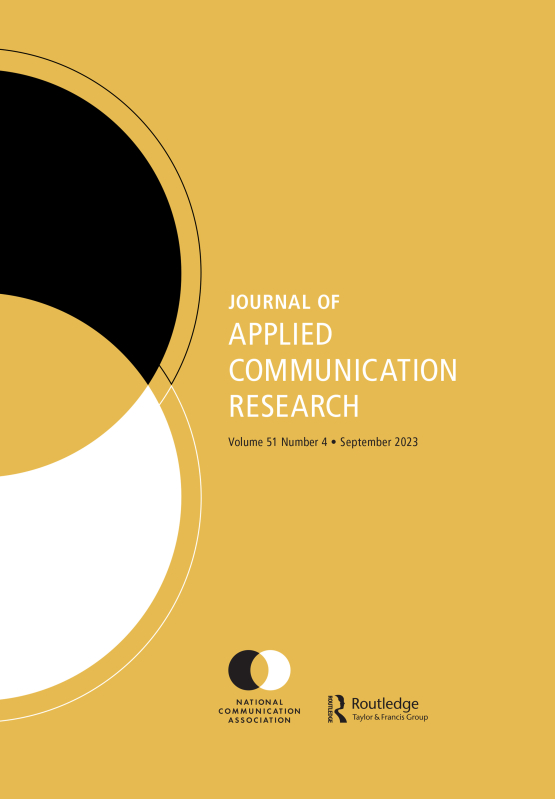Journal of Applied Communication Research
Editor Call for Papers
As a flagship publication of the National Communication Association, the Journal of Applied Communication Research publishes original, high-quality research that contributes to our understanding of the connections between communication theory and practice. The journal is a premier outlet for engaged research.
The editorial team welcomes all methodological approaches and invites submissions from across the globe. The team is committed to promoting equitable and inclusive reviewing practices.
All work submitted to the journal should consider diversity, inclusion, and equity issues related to project design, analysis, writing standards, and citations.
Authors may submit the following types of articles:
Research Articles: We invite manuscripts that 1) are clearly motivated by an important applied communication problem or issue and 2) develop new insights regarding communication theory. 3) Given the high volume of submissions, we will prioritize work that discusses specific mechanisms by which findings/insights can influence communication practices. (Length: up to 9,500 words with references and notes, excluding tables and figures).
In addition to those factors, evaluation criteria assess the quality of insights, clarity of argument, methodological rigor, as well as the inclusivity of research design and writing practices.
Field Reports: I am pleased to introduce the “Field Reports” section of the journal. Field reports are brief articles that describe an applied project, intervention, or case study. I welcome articles by academic authors and/or practitioners, particularly those working in the global south and/or with marginalized populations. With less emphasis on theory building, these pieces should clearly describe the applied project and discuss how insights emerging from the analysis can be used in other projects/locations. (Length: up to 4500 words with references.) Field Reports can accommodate work that is heavily visual or arts-based.
Evaluation criteria will assess the significance and ethics of the field project/study/intervention, the clarity and quality of insights and their utility for other projects, clear writing (and quality visuals when relevant), along with attention to diversity and equity issues.
Reviews of Monographs
Reviews of recently published books and monographs relevant to the JACR audience should be no more than 1500 words. Contact the Editor if you are interested in submitting a review.
More about the journal
The Journal of Applied Communication Research (JACR) is a peer-reviewed publication of the National Communication Association. JACR publishes original scholarship that contributes to knowledge about how people practice communication across diverse applied contexts. All theoretical and methodological approaches are welcome, as are all contextual areas. Of utmost importance is that an applied communication problem or issue is clearly identified as the motivation for the research.
Because of the journal’s commitment to both academic and applied audiences, JACR articles should clearly address both academic insights and specific practical applications drawn from the research. Of particular interest are studies that focus on contemporary social issues.
For more details about how to submit your research to JACR, please review our Instructions for Authors and Editor’s Call for Papers.
Unless specifically indicated otherwise, articles in this journal have undergone rigorous peer review, including screening by the editor and review by at least two anonymous referees.
